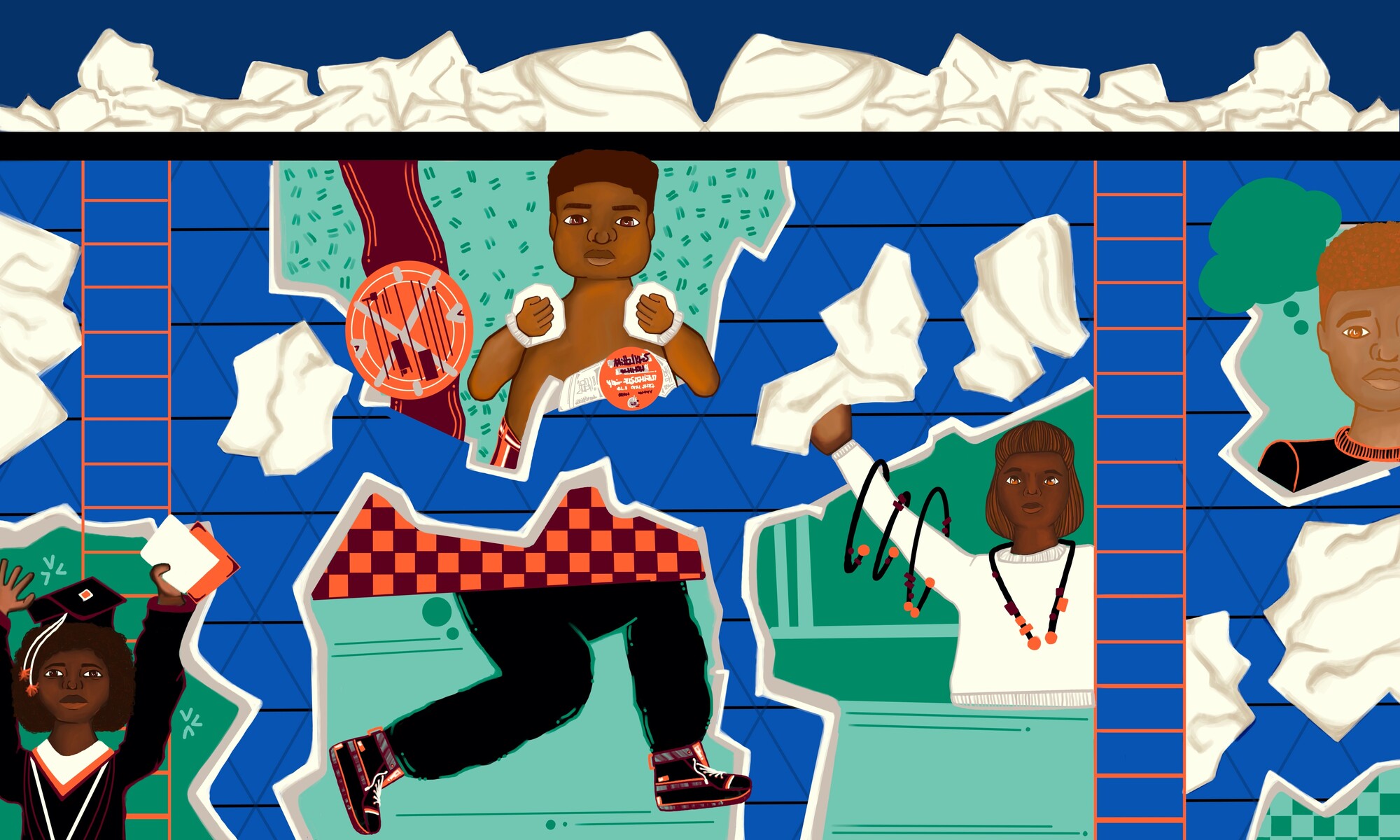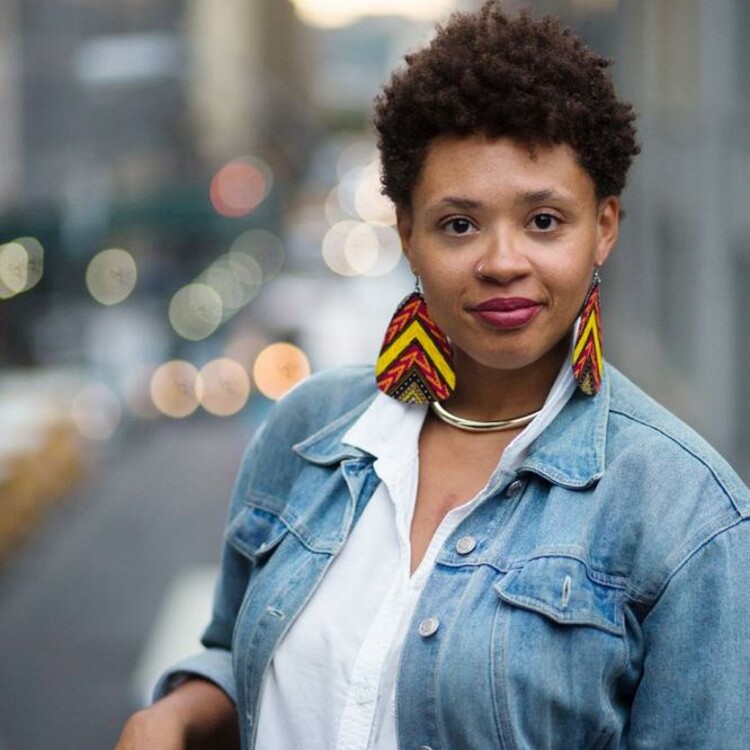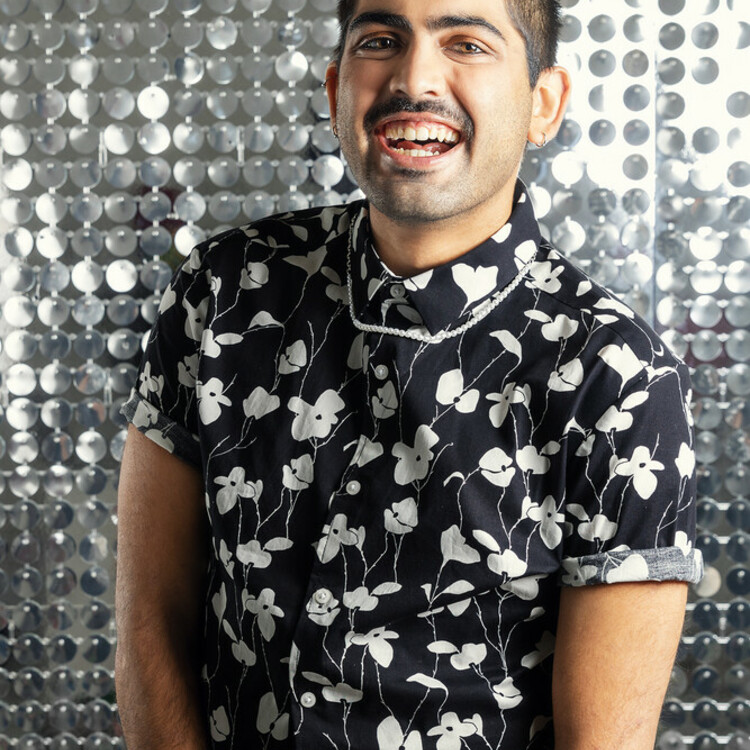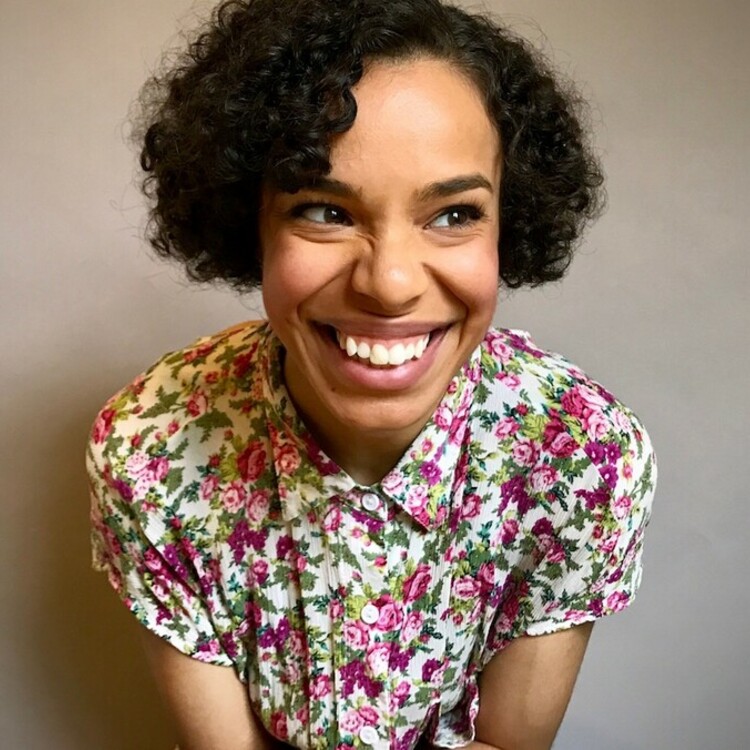When asked to consider what the future of the theatre field would look like when resources and power are shared equitably in all directions, it feels important to first acknowledge that the mere question highlights the reality that the American theatre was not created equally in service for all artists and audiences. From its inception, there has been an imbalance of power and resources that has privileged an elite few—predominately white theatremakers—and left behind so many artists, audiences, and storytellers of color.
A Future Built by Us
An Imagination Exercise with The Movement Theatre Company

Illustration by Silent Fox, inspired by the essay.
However, like so many Black and Brown artists before, we at The Movement Theatre Company didn’t sit and wait to be served. We banded together, learning how to be administrators, raising our own funds, and building an artistic home for innovation that centers wholeness and authenticity. Guided by our mission of creating an artistic social movement by developing and producing new work by artists of color, we celebrate the triumph of the resilience of Black and Brown people through complex stories of both the everyday and the extraordinary. We believe that in centering our artists in a collaborative process of theatremaking and empowering them to explore the many sides of their unique voice, we create an environment for community-building, abundance, and liberation. Through our artistic work, we have been leaders in the field in the efforts towards larger cultural shifts that actively dismantle white supremacy and the other oppressive systems that have tried to push us into the margins. Like our predecessors and the many organizations, collectives, and ensembles of color that have come after us, our sheer existence is an act of resistance built on the premise of reimagining a future for the field that was not built for us, but whose future will be built by us.
Success would be measured by the value that organizations and institutions have in the community.
In dreaming forward towards a more equitable field this is what we envision:
- An equitable distribution of resources and power, which begins with a field-wide reckoning, where artists, leaders, and especially theatres of color are finally acknowledged for the labor and artistry we’ve put into the field. It begins with reparations, uplifting the organizations that have been historically underfunded and under-supported. This equitable future centers the needs and experiences of the people who have been marginalized and oppressed, the most vulnerable among us.
- A celebration of new models of leadership, which are made visible at all levels of theatres and which hold community leadership equal to the singular artistic director model. At The Movement, we run our organization entirely unilaterally, with all five members of the producing artistic leadership team holding the same title and serving as creative producer, artistic director, administrator, and artist. This shared leadership model embraces the principle of collaboration at our core and cultivates a vision that embraces dialogue and inclusion as a means of community-building.
- Theatres leading through values instead of checkbooks, as well as revisiting and revising their mission and vision statements to reflect their values and honoring those statements with their actions and not just words.
- White people recognizing that it is their personal and professional responsibility to uproot the many systems of oppression, including white supremacy, racism, anti-Blackness, misogyny, the patriarchy, anti-Indigeneity, transphobia, homophobia, and ableism, from their way of living/working/existing. Also, leaders of color in both predominantly white organizations and theatres of color committing to the same level of active, ongoing dismantling of the systems we have internalized and perpetuated.
- Leadership, decision-makers, and gatekeepers being Black Trans Women and Femmes who don’t pander to respectability politics.
- Leadership that centers communities and the consistent call for revolutionary growth and change.
- Audience engagement and outreach—which for the most part just means butts in seats these days—not just being about ticket sales but instead being rooted in the value of meaningful connections with the people who are most in need of the work. This requires moving away from capitalistic transactional models into a relational way of being with audiences and the communities we are here to serve.
- Measures of success not being based on pandering to wealthy white audiences or receiving high-profile reviews. Instead, success would be measured by the value that organizations and institutions have in the community.
- Theatres asking: How do we provide care for our audiences? How do we engage and sustain our community holistically? How do we consistently increase access to the work and expand our standards of accessibility? How do we build local, national, and global networks and community partnerships? Does our work provide resources for education, wellness, and upliftment? Is our local community a participant in our vision for our organization? Are they given agency in determining what they want and what they need from us? Are we listening?
- Artists of color not having to choose between working for money at predominately white institutions or working with their community, because the artistic homes built for them will be able to pay equally competitive wages. All artists will get to thrive, not just barely survive, doing the work they want.
- A closing of the wage gap between the least paid and the most paid, not only for lead artists, but for assistants, interns, and overhire workers, all of whom will be valued as crucial laborers.
- Brand new systems of work and compensation that value rest, self-care, and the overall health and wellness of artists. The future field will honor the artists’ right to find balance and receive support in both their professional and personal lives.
- Practices and policies that center harm reduction, accountability, and justice.
- An understanding that the power of theatre lives in the limitless possibilities of the work. A liberated theatrical industry celebrates forms of theatre that are new and inventive—it doesn’t look at a Black play and label it “risky” and “niche” while uplifting Eurocentric writing as “cool” and “universal.” The stories we choose to uplift are important. They reflect the way the world should be and what we as a society should be musing on. By celebrating new voices, forms, and aesthetics on stage, created by artists who have been historically ignored, we can shift culture and expand the conversations we are engaging our audiences in.
- Artistic equity. Black artists, Indigenous artists, artists of color, queer artists, Trans and gender-nonconforming/non-binary artists, disabled artists, and artists from other historically marginalized communities will be given free rein to create for themselves, telling stories that inspire and center their truths and experiences. The future welcomes expansive imagination and no longer stifles the truth in place of what makes white people comfortable.
The future field will honor the artists’ right to find balance and receive support in both their professional and personal lives.
In brainstorming and envisioning this idealistic future, we felt a lightness. We envision a field where theatremaking can be human-centric, championing the holistic needs of its artists and the communities served above the capitalistic systems we operate in. A field where artists can bring their whole selves to the creative process and create while feeling not just free but liberated.
It’s going to take more than just dreaming forward to heal from the decades of inequity, erasure, imbalance, and trauma. It is going to require major upheaval and paradigm shifts. But these large-scale shifts begin with small actions. As writer and social justice activist adrienne maree brown states in Emergent Strategy, “Small is good, small is all.” One small action we believe anyone can take today is to examine the relationships they have with the culturally specific theatres of color in their own neighborhoods and communities. What resources and power can they share with those organizations right now? Because those organizations are the ones that have been actively working towards a more equitable and liberated future for us all.
Through the equitable sharing of resources and power, theatremakers of color won’t have to spend so much time fighting for financial freedom. The labor of art-making will be joyous because we can spend more time dreaming big, serving the needs of our artists and communities, and creating a richer field that celebrates and serves all artists and audiences.







Comments
The article is just the start of the conversation—we want to know what you think about this subject, too! HowlRound is a space for knowledge-sharing, and we welcome spirited, thoughtful, and on-topic dialogue. Find our full comments policy here